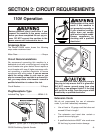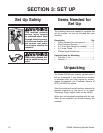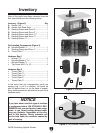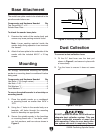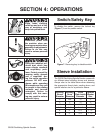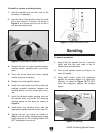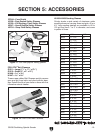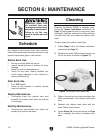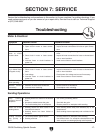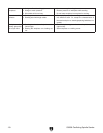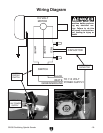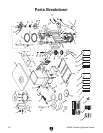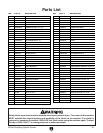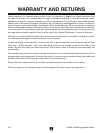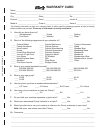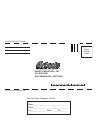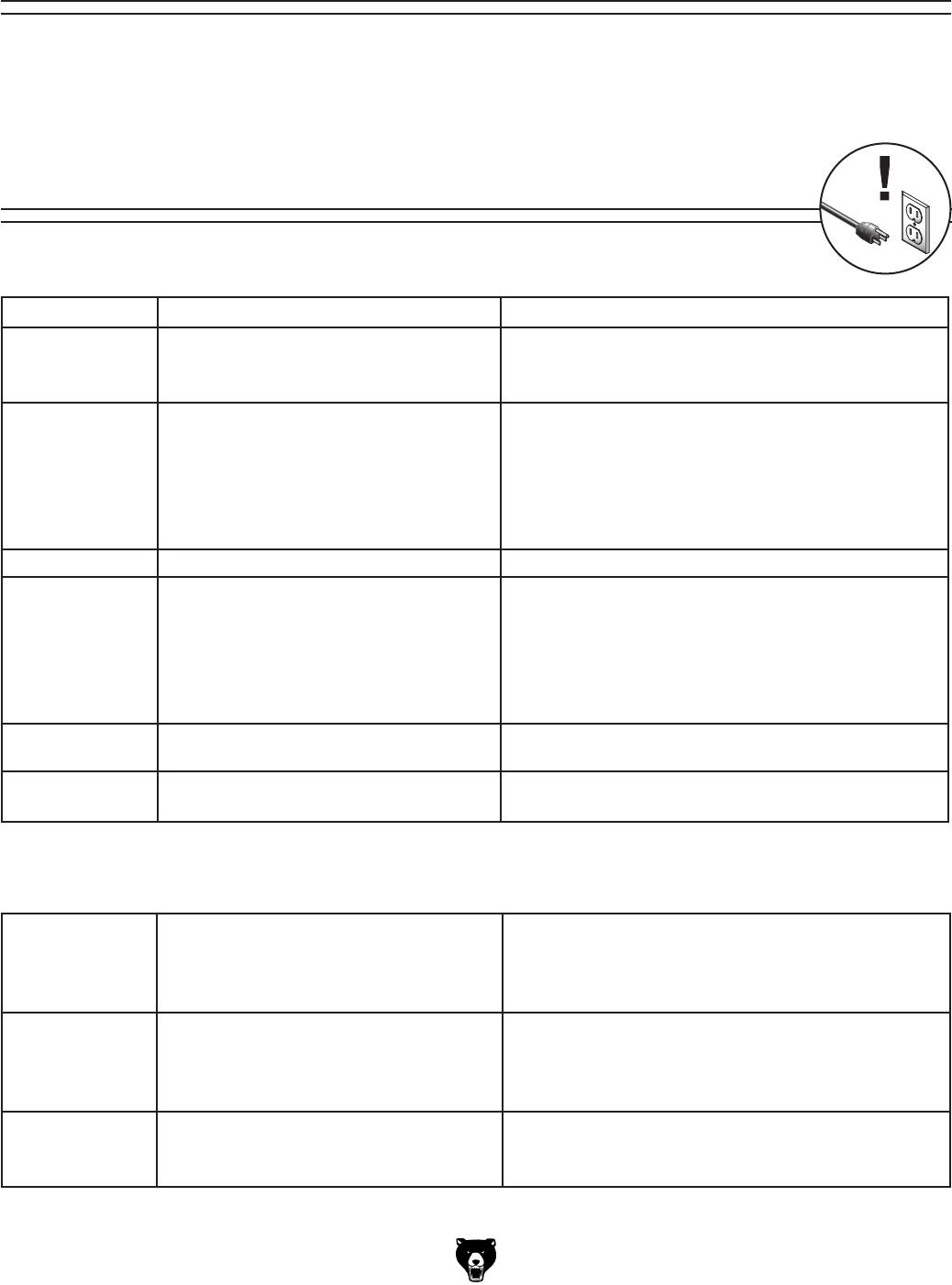
G0538 Oscillating Spindle Sander
-17-
Review the troubleshooting and procedures in this section to fix your machine if a problem develops. If you
need replacement parts or you are unsure of your repair skills, then feel free to call our Technical Support
at (570) 546-9663.
SECTION 7: SERVICE
Troubleshooting
Motor & Electrical
Symptom Possible Cause Possible Solution
Motor will not start. 1. Low voltage.
2. Open circuit in motor or loose connec
-
tions.
1. Check power line voltage and correct if necessary.
2. Inspect all motor connections for loose or open connec
-
tions.
Motor will not start;
fuses or circuit
breakers blow.
1. Short circuit in line cord or plug.
2. Short circuit in motor or loose connec
-
tions.
3. Incorrect fuses or circuit breakers in
power line.
1. Inspect cord and plug for damaged insulation or shorted
wires.
2. Inspect all motor connections for loose or shorted termi
-
nals or worn insulation.
3. Install correct fuses or circuit breakers.
Motor overheats. 1. Motor overloaded. 1. Reduce load on motor.
Motor stalls (result
-
ing in blown fuses
or tripped circuit).
1. Motor overloaded.
2. Short circuit in motor or loose connec
-
tions.
3. Low voltage.
4. Incorrect fuses or circuit breakers in
power line.
1. Reduce load on motor.
2. Inspect connections on motor for loose or shorted termi
-
nals or worn insulation.
3. Check power line voltage and correct if necessary.
4. Install correct fuses or circuit breakers.
Machine slows
when operating.
1. Workpiece pressure is too great. 1. Reduce workpiece pressure on spindle.
Machine vibrates
excessively.
1. Machine not secured to workbench.
2. Incorrect motor mounting.
1. Secure machine to workbench.
2. Check⁄adjust motor mounting.
Sanding Operations
Deep sanding
grooves or scars in
workpiece.
1. Sanding sleeve too coarse for the desired
finish.
2. Workpiece sanded across the grain.
3. Too much sanding force on workpiece.
1. Use a finer grit sanding sleeve.
2. Sand with the grain.
3. Reduce pressure on workpiece while sanding.
Grains rub off the
sanding sleeve.
1. Sanding sleeve has been stored in an
incorrect environment.
2. Sanding sleeve has been folded or
smashed.
1. Store sanding sleeve away from extremely dry or hot
temperatures.
2. Store sanding sleeves separately and not folded or flat.
Sanding surfaces
clog quickly or
burn.
1. Too much pressure against sleeve.
2. Sanding softwood.
1. Reduce pressure on workpiece while sanding.
2. Use different stock. Or, accept the characteristics of the
stock and plan on cleaning⁄replacing belts frequently.



